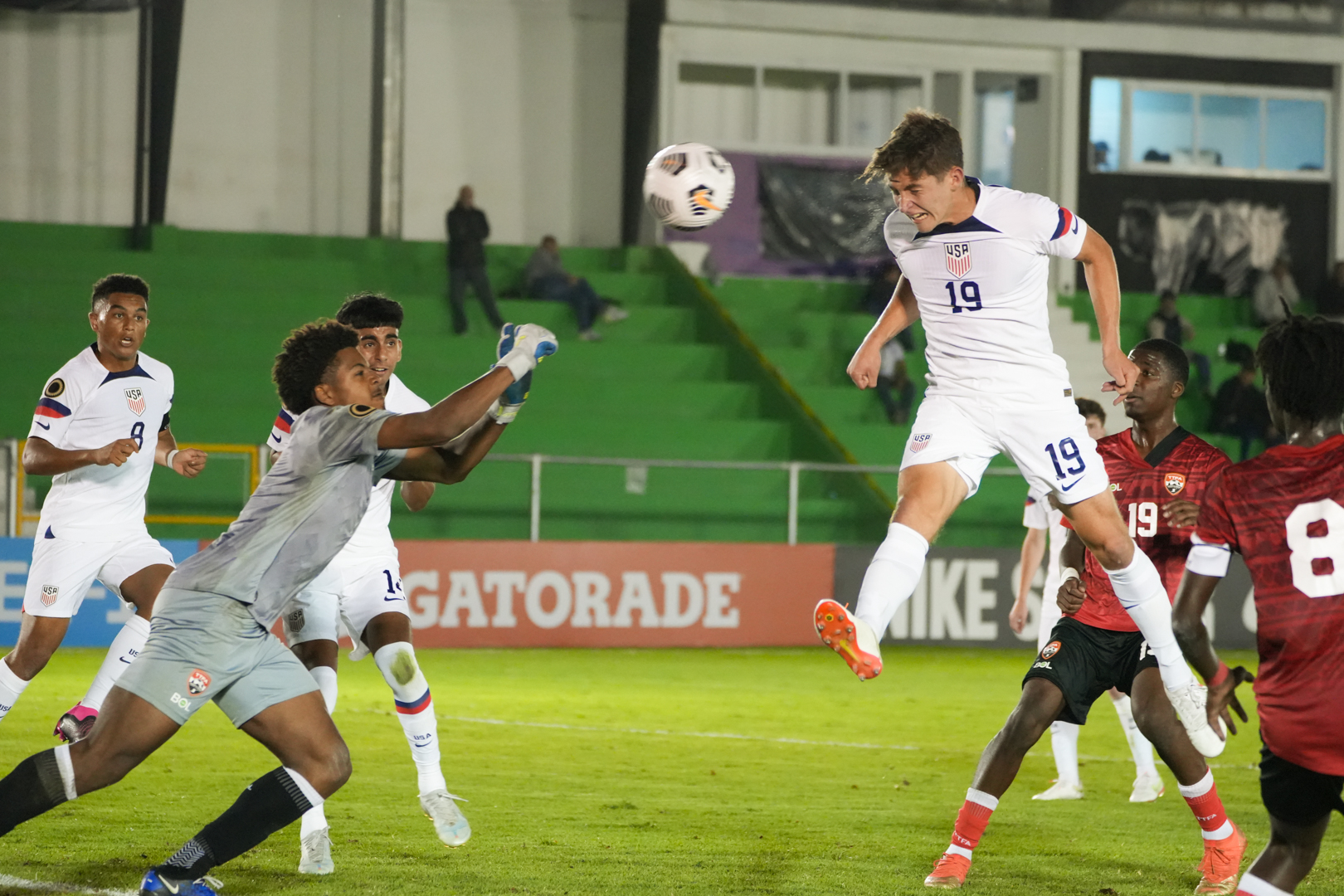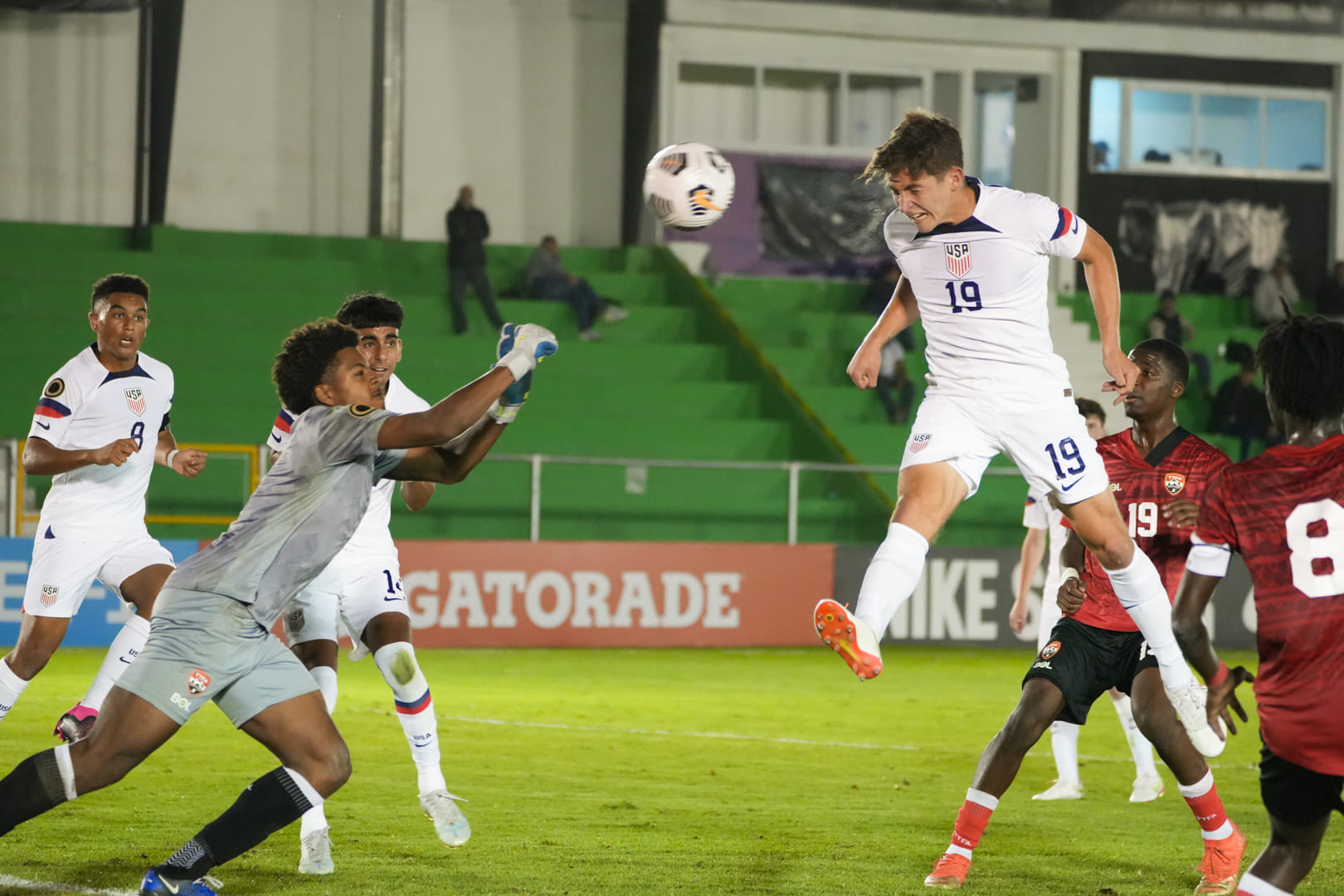The United States U-17 men’s national team secured first place in their 2025 FIFA U-17 World Cup group with a tactical masterclass against Czechia, as 16-year-old substitute Mathis Albert emerged as the knockout stage hero in Qatar.

U-17 USMNT Claims Group Crown: Mathis Albert’s Late Strike Signals Golden Generation’s Arrival
In the sweltering heat of Qatar, a new generation of American soccer talent announced its arrival on the global stage. The U-17 United States Men’s National Team’s 1-0 victory over Czechia not only secured top spot in their World Cup group but also showcased a tactical sophistication and mental fortitude that suggests this could be the most promising youth cycle since the golden class of 2017.
The match itself was a study in contrasts and patience. Facing a physically imposing Czech side that dominated early possession with their technical superiority, head coach Gonzalo Segares’ young Americans demonstrated remarkable defensive discipline. Rather than panic under pressure, they absorbed wave after wave of European attacks, waiting for their moment to strike.
That moment arrived in the 78th minute through Mathis Albert, a name that may soon become very familiar to American soccer fans. The 16-year-old forward from LAFC’s academy had already shown glimpses of his potential with an earlier tournament goal, but this was different – this was clutch. Introduced as a substitute with the match delicately poised, Albert needed just minutes to make his impact. When the through ball arrived, splitting the Czech defense, the youngster showed composure beyond his years, latching onto the pass and finishing with the clinical precision of a seasoned professional.
Albert’s second goal of the tournament was more than just a match-winner; it was a statement of intent from an American youth system that has undergone significant transformation under technical director Matt Crocker. The goal epitomized the team’s tournament-long approach: disciplined defense transitioning into explosive counter-attacks, a tactical maturity rarely seen at this age level.
The defensive statistics tell their own impressive story. Conceding just one goal throughout the group stage, this U-17 squad has built its success on a foundation of organization and communication that belies their youth. The partnership between defenders has been particularly noteworthy, with the backline consistently frustrating opponents who expected to overwhelm the Americans with superior technical ability.
But it’s not just about defense and opportunistic finishing. The creative spark has come from Nimfasha Berchimas, the dynamic winger who has terrorized defenses throughout the tournament with his pace and directness. His three assists demonstrate an end product often lacking in young wide players, while his ability to stretch play has been crucial in creating space for teammates like Albert to exploit.
At the heart of everything sits captain Pedro Soma, the midfield general who has played every minute of every match. His influence extends beyond the statistical – though his passing accuracy and defensive interventions have been impressive – to the intangible qualities of leadership and game management. Watching Soma direct traffic and maintain composure under pressure, it’s easy to forget you’re watching a teenager rather than a seasoned professional.
The pathway implications of this success cannot be overstated. This core group, heavily featuring products from MLS NEXT academies including Philadelphia Union, LAFC, and Real Salt Lake, represents the fruits of American soccer’s renewed focus on youth development. These aren’t just talented individuals; they’re products of a coherent system that emphasizes technical ability alongside tactical understanding and mental resilience.
With U-20 World Cup qualification already secured, players like Albert and Berchimas find themselves on an accelerated track toward senior recognition. History suggests that standout performers at U-17 World Cups often receive senior call-ups within 3-4 years, meaning we could see some of these names in USMNT camps by 2027-28. Success in the upcoming Round of 16 – where the opponent is yet to be determined – could further fast-track professional contracts and European interest.
The comparison to the 2017 generation is particularly apt. That team, which featured current senior internationals like Tyler Adams and Yunus Musah, reached the quarterfinals and laid the groundwork for the USMNT’s current golden generation. This 2025 group appears to possess similar potential, perhaps with even greater tactical sophistication at the same age.
What sets this team apart is their adaptability. Against CONCACAF rivals in earlier group matches, they showed they could match physicality and directness. Against host nation Qatar, they proved they could handle a hostile atmosphere and technical opposition. And against Czechia, they demonstrated the patience and clinical edge needed to win tight knockout-style matches.
The broader context makes this success even more significant. As American soccer prepares to host the 2026 World Cup, the emergence of a genuinely competitive youth team provides hope for sustained success beyond the home tournament. These players will be 17-18 years old when the world comes to North America, perfect ages to serve as training partners and future stars in the making.
For Mathis Albert specifically, this tournament could prove career-defining. Scouts from European clubs are increasingly monitoring American youth tournaments, and a continued scoring run in the knockout stages could accelerate his development path significantly. The LAFC academy product has shown not just finishing ability but intelligent movement and the rare quality of rising to big moments – attributes that translate regardless of level.
As the U-17 USMNT prepares for the knockout stages, they do so with momentum and belief. The combination of defensive solidity, creative spark, and clinical finishing suggests this team has the tools to make a deep run. More importantly, they represent tangible evidence that American soccer’s youth development overhaul is bearing fruit. In the desert of Qatar, a new generation is blooming, and Mathis Albert’s late strike against Czechia might just be remembered as the moment it all began to come together.


